Ne csak nézz! Láss is! – A Kalergi tervről
Hetek óta „menekültnek” kinevezett áradat lepi el illegálisan Hazánkat. A határ előtt irataiktól és márkás ruházatuktól megszabaduló, luxus mobil telefonokkal és órákkal, pénzzel ellátott zömmel fiatal férfiak érkeztek.
Nem lehet tudni, kik, és milyen szándékkal. Más földrészről, teljesen más kultúrával és identitással, teljesen más szokásokkal érkezők, akikre nem vonatkozik semmi más, csak a törvényen kívüli állapot, a nekik mindent megengedő, de nekünk a kötelezően elfogadó, alkalmazkodó állapot. A saját hazámban, ahol rám szigorúan vonatkoznak a törvények, rájuk nem. Védtelenné, és szabad prédává vált a Hazám, ahol már nemcsak a sokadik, de az Isten tudja hányadik helyre sorolt állampolgár lett a nemzetileg elkötelezett magyar, aki nemcsak állampolgár.
Vajon miért vesszük tudomásul, hogy nincs hivatalos személyazonosságuk a Hazánkba törvényen kívül bejötteknek, mivel azt eltüntették? Kik és milyen hátsó szándékkal irányították Magyarországon keresztül Európába ezt a végelláthatatlan, szűnni nem akaró embertömeget? És kik irányítják folyamatosan, mert ezt nem lehet csak az embercsempészekre fogni. Azok csak élnek a felkínált lehetőséggel, ami meglehetősen nagy hasznot hoz a helyzet kínálta, e célból megalakult maffiáknak.
A Bevándorlási és Állampolgársági Hivatal főváros vezetését tájékoztató adatai szerint a január 1-e óta regisztrált illegális határ átlépő 135 ezer fő 81.3 %- a férfi, és ennek 66 %- a 18 és 34 év közötti (110 ezerből 73 ezer). Természetesen a fennmaradó 18.7 % is megoszlik. Nyilvánvaló, hogy a hozzánk érkező migránsok száma ennél mára több tízezerrel magasabb, hisz folyamatosan lépik át a határt.
A híradásokban is láthatóan jólöltözött, életerős fiatal, kisportolt, erős fizikumú, katona-érett jövevényeket látunk. Vannak köztük családosok, nők, szülők nélkül érkező gyerekek. Kis részük valóban feltételezhetően menekült, akiket kötelességünk segíteni, de nagy számban vannak köztük gazdasági bevándorlók, akik egy jobb élet reményében özönlenének az öreg kontinens gazdag országaiba.
Ha a 18-34 éves katonakorú férfiak, „menekültek” lennének, felmerül a kérdés, miért nem a hazájukat védik? Netán miért nem a szomszédos, gazdag arab országokba menekülnek, akikkel és ahol sokkal közelebbi a gondolatviláguk, a vallásuk, a kultúrájuk. Milyen ezeknek a fiataloknak a hazaszeretete, az identitása? Ki védje meg helyettük a hazájukat?
Ráadásul – ide érkezve – tiltakoznak a regisztráció, az ujjlenyomat adása ellen. Vajon miért? S mi több, követelőzőek, és egyre agresszívabban viselkednek, amit a hazájukban nyílván nem engedhetnének meg maguknak. Egy teljesen más, nem európaihoz hasonló kultúrát, vallást, elveket képviselnek. Véleményem szerint fennáll a lehetősége annak, hogy az ilyen korú férfiaknak jelentős része nem is civil, csak annak öltözött.
Félő, hogy vannak köztük olyanok, akiket nem kívánatos céllal is küldhetnek Európába, hogy meghatározott időpontban civilből visszaváltozva agresszíven átvegyék az irányítást Európában. Egyre többet hallani olyan migránsok által a nyugati nagyvárosokban kialakított „szigetekről”, valójában városrészekről, ahová már a befogadó ország rendőrei sem merik betenni a lábukat. S ezek száma egyre csak nő.
Ez a menekült áradattal történő jogsértő invázió eltereli számos aktuális dologról a figyelmet. Az USA-EU szabadkereskedelmi egyezményről, a nemzetállamok helyetti európai egyesült államok létrehozásáról, valamint a keresztény gyökerű Európa, a fehér emberek és kultúrájuk tudatosan célzatos átalakításáról. Magyarul: Európa bekebelezéséről, elpusztításáról.
Az emberek nem tudnak, a Kalergi tervről, a multikulturális propaganda pedig a tömeges népvándorlást szándékosan történelmi folyamatnak állítja be, félrevezetve Európa lakosságát. A tervről én magam is csak akkor szereztem tudomást, amikor a postámba véletlenül befújta a szél, ennek az ismertetését. Ezt szeretném most megosztani, a még felelősen gondolkodó honfitársaimmal, mert Európa és a mi megmaradásunk, és utódaink jövője a tét.
***
Amit elhallgattak előttünk Kalergiről és elképzeléseiről
Richard Coudenhove-Kalergi a háttérben maradva sikeresen győzte meg Európa legfontosabb államfőit az európai integráció tervének végrehajtásáról részben családi hovatartozása révén, valamint osztrák diplomata apja politikai kapcsolatait felhasználva.
1922-ben Bécsben az „Új világrend” létrehozásának céljával létrehozta Kalergi a Pán-Európai Mozgalmat. Tagjai az USA és a vele szövetséges föderális államok voltak, feladatuk az európai integráció megindítása volt. Hitler hatalomra kerülésével a tervet törölték és a mozgalmat szétverték. A II. világháború után Kalergi terve ismét napirendre került, és Winston Churchill és a B’nai B’rith szervezet a New York Times pedig média oldalról támogatta. Végül az USA kormánya a tervet elfogadta, és a CIA elkezdte a terv megvalósítását.
Ennek az elképzelésnek a lényege dióhéjban a következő:
Kalergi elképzelését „Praktischer Idealismus” – című munkájában foglalta össze.
Az ismertető szerint:
” Kalergi rámutat, hogy a jövő Európáját nem az Óvilág honos népei birtokolják majd, hanem egy fajta ember alatti ember, mely a különböző rasszok kényszerített keveredésének az eredménye.”
Egyértelművé teszi, hogy Európa népeit színes népekkel kell keresztezni, „hogy létrejöjjön egy identitás, etnikai hovatartozás nélküli gyökértelen és soknemzetiségű sokaság melyen a jövőbeli hatalmi elit könnyűszerrel tudna uralkodni.”
„Első lépésben az európai nemzetek önrendelkezési joguktól való megfosztását hirdette” amire az EU vezetői is egyértelműen törekszenek. Ezt követően a nemzeti közösségek megszüntetését a tömeges bevándorlás, és etnikai szeparatista mozgalmak révén tartotta szükségesnek „ahhoz, hogy Európát egy új vezető réteg akadálytalanul uralhassa.”
Noha Kalergi nevét nem említik, az EU gyakorlatilag – úgy látszik -, az ő elképzeléseit valósítja meg. S a jelenlegi „népvándorlás” előidézése is ezt látszik igazolni. Hisz nem természeti katasztrófa, hanem szándékos háborús övezetek kialakításának következménye az, hogy más kontinensekről történik az Európába történő határtalan, és szándékos betelepítés.
Eközben a földrész elöregedésére hivatkoznak, az érdekeinket mára már nem képviselő, de sajnálatosan megválasztott illetve kinevezett politikusok. Történik ez a földrész lakóinak beleegyezése nélkül. A lakosságot pedig tudatosan félrevezetik.
Nem áll szándékomban feltételezni, hogy mindez közismert Európa minden vezető politikusa előtt, de azt is nehéz tudomásul venni, hogy ennyire ostobák és tájékozatlanok lennének. Nyitva hagyott kérdés marad, vajon miért teszik azt, amit tesznek.
Arról, hogy a háborúk kirobbanásáért kiket, konkrétan mely államot terheli a felelősség, még csak említés sem történik. Az USA pedig a „menekültek” befogadásából minimálisan sem kívánja kivenni a részét. Tetteinek tragikus következményét Európára hárítja át.
„Az ENSZ New York-i kirendeltségének egy 2000. év január havában közzétett jelentése szerint – címe: „Immigration replacement: A solution to declining and aging population” – Európának 2025-ig 159 000 000 bevándorlóra van szüksége.”
Valóban? Kiknek az érdekében? Milyen céllal?
Különösen figyelemre méltó, hogy kétévente azokat a politikusokat, akik a terv végrehajtásában közreműködnek, Coudenhove-Kalergi Európa díjjal ismerik el.
Érdemes utána nézni a net-en, hogy eddig kiket tüntettek ki. Meg fognak döbbenni.
Ebben a katasztrofális történelmi helyzetben a magyar kormánynak, de az EU-nak is el kell döntenie, hogy valóban ehhez a célhoz segédkeznek-e a továbbiakban, és tragikus, önpusztító intézkedéseikkel hozzájárulnak-e az európai ember, az európai keresztény kultúra elpusztításához. Ez az, ami csak idő kérdése. Gyermekeink és unokáink már szenvedő alanyai lesznek mindennek, ha ez így folytatódik.
Amennyiben a kormányok Európa érdekei ellen tesznek, úgy a nemzetállamok lakosságának saját kezükbe kell venni sorsuk és határaik megvédését, és össze kell fogniuk egymással, mert utódaiknak ez az egyetlen esélye a megmaradáshoz.
Mert nemcsak az a genocídium, ha egyes népcsoportokat irtanak ki, de az is, ha egy egész földrész lakosságát próbálják szándékosan eltüntetni a Föld színéről.
Orbán Viktor miniszterelnökkel csak egyet érteni lehet a felelősséggel gondolkodóknak abban, hogy Európa érdekében Európa határait le kell zárni. Magyar nemzeti érdeknek elkötelezett politikusként szövetséget kellene kötnie az egyetlen nemzeti érdekeket képviselő ellenzéki párttal, a Jobbikkal. Felvállalni a Magyar Gárdát, és Nemzeti Gárdává alakítani, hogy megvédjük Magyarország határait, és a Kárpát-medencei magyarokat. Ami egyben az arra méltatlan Európa részbeni megvédését is jelentheti.
Ezt tettük évszázadokon keresztül. Ez a mi megkülönböztető ismertető jelünk.
S mint Rákóczi vitézlő fejedelmünk hirdette, kötelességünk ma is:
Cum Deo pro Patria et libertate!
Orbán Éva
Megjelent a KAPU szeptemberi számában

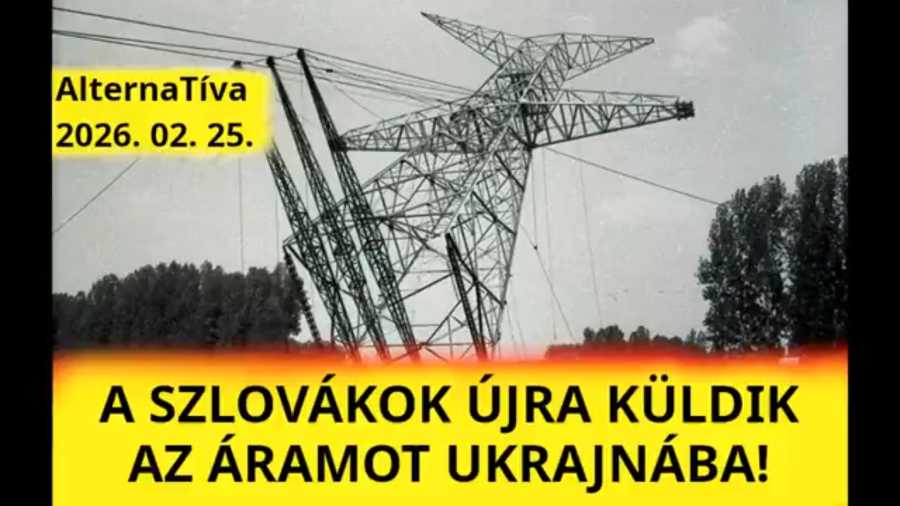
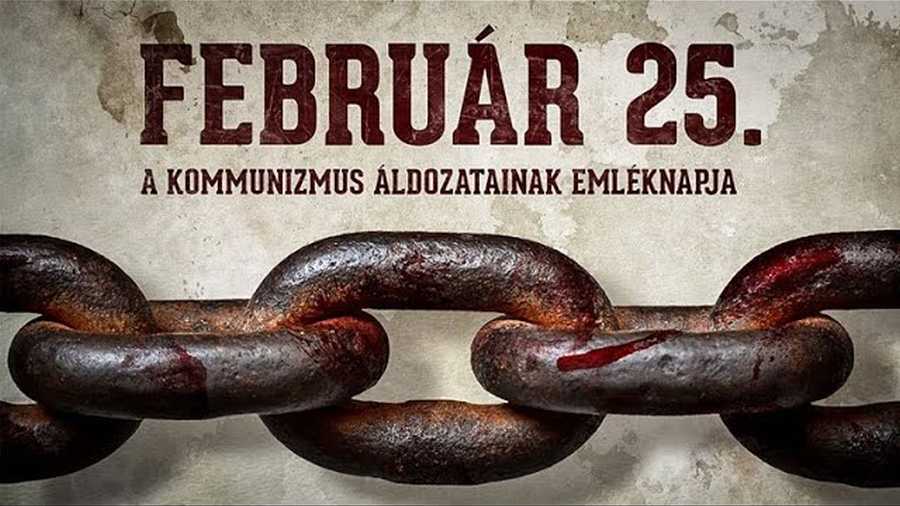
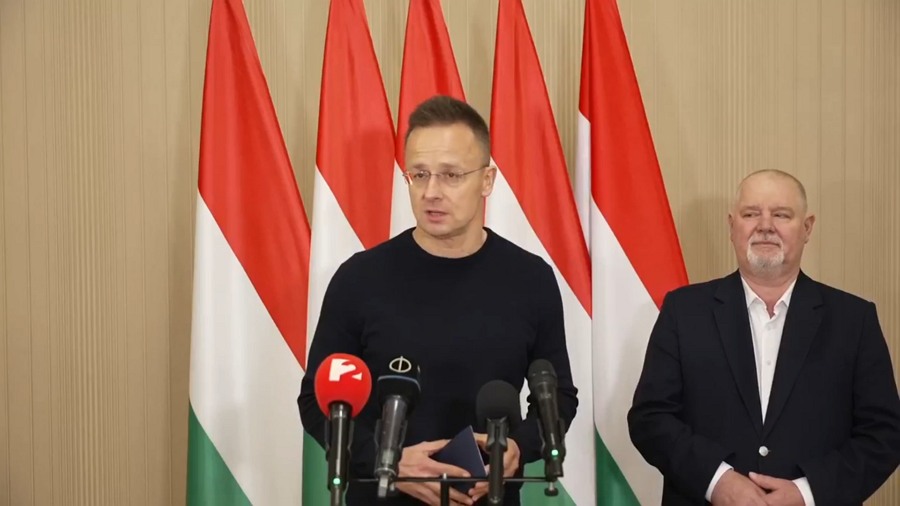
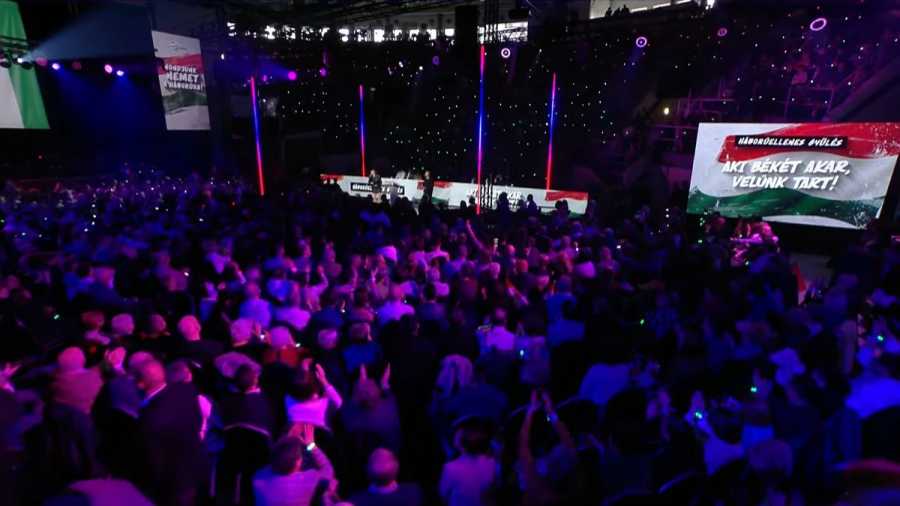
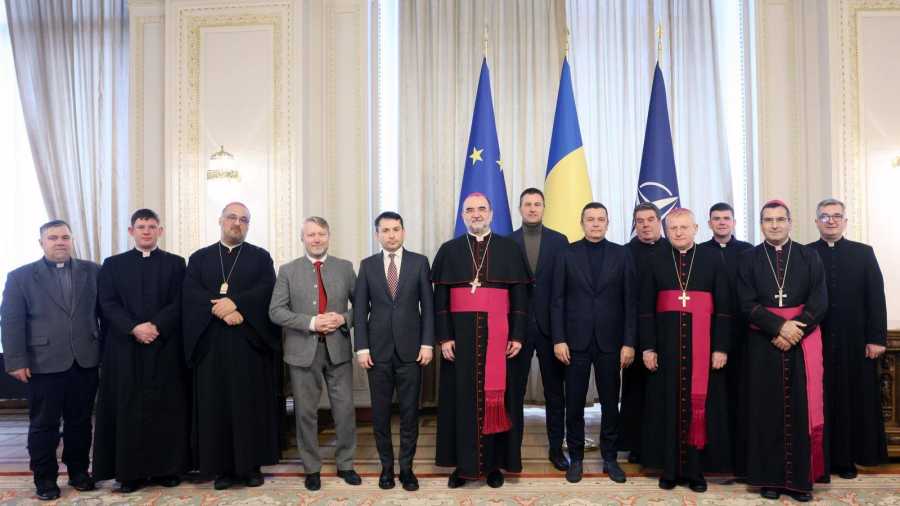
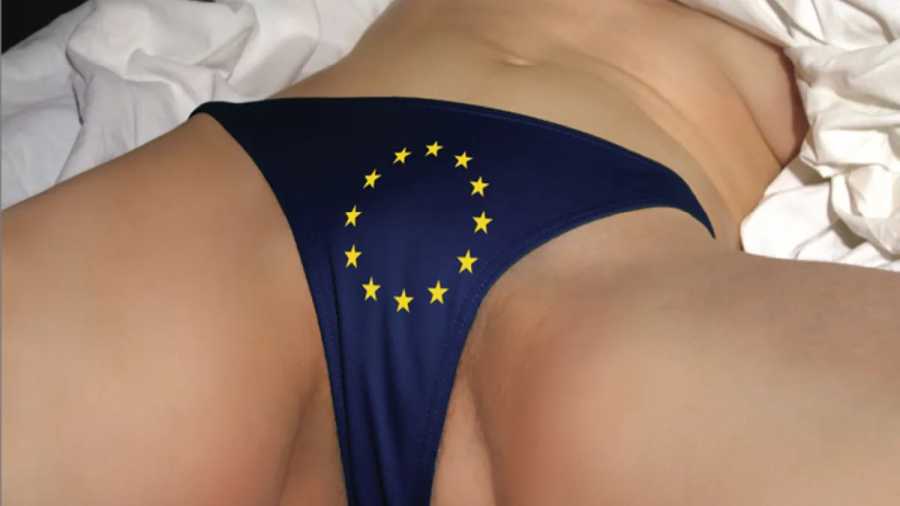
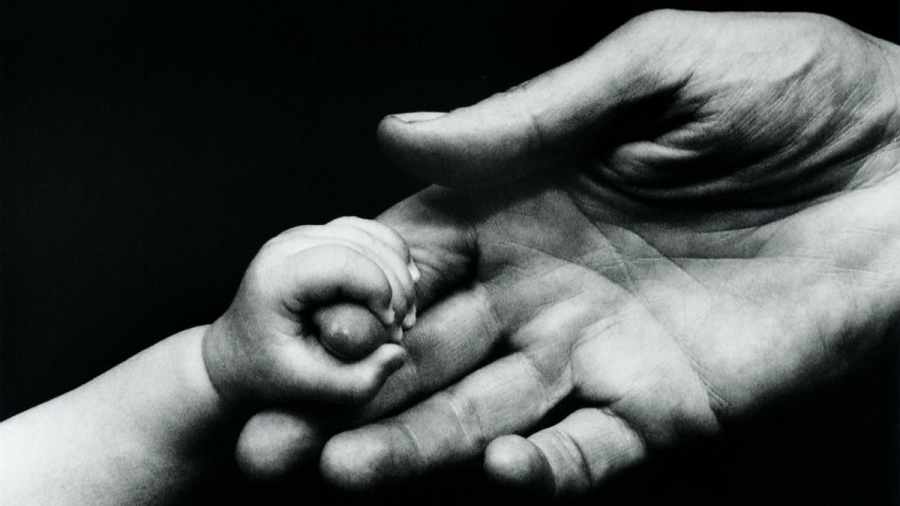
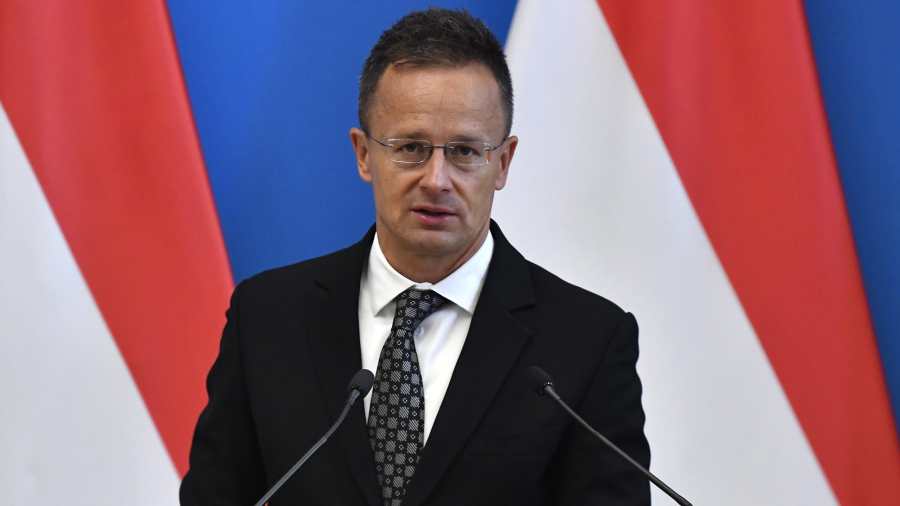
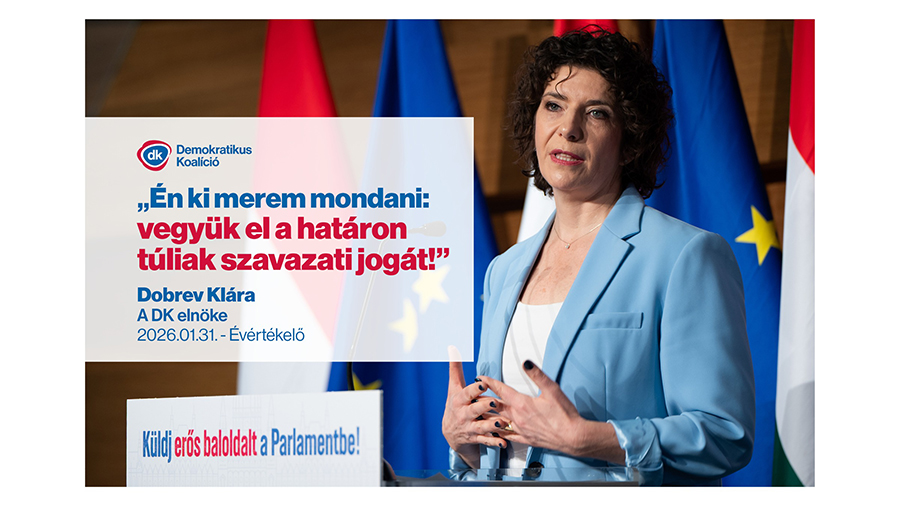


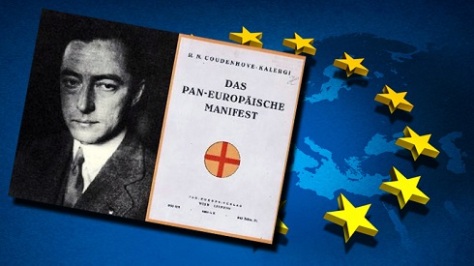
http://www.ena.lu/richard_coudenhove_kalergi_europe_unite_1938-2-22322
Ezen a linken található az alább bemásolt R.C. K. Europa must unite szemelvény
Az 1922-es Kalergi dokumentum pedig 8 dolléárért letölthető a Scribd oldaláról eredeti kiadás PDF formátumában
http://www.scribd.com/doc/266667987/Pan-Europa-Kalergi
Az „ember alatti ember” kifejezést nem találtam, de persze meglehet, hogy nem túl jó az angolom, mindenesetre köszönet Orbán Évának a cikkért.
Én azonban azt hiszem, hogy a tervnek tulajdonított szörnyűségeket inkább utólag szúrták bele azok a liberális erők, akiknek áldatlan tevékenysége vezetett a mostani agresszív migráns hullámhoz.
Jó lenne, ha ténylegesen olvashatnánk az eredeti iratot, mégpedig korrekt és tisztességes fordításban
* * *
Richard Coudenhove-Kalergi, Europe must unite (1938)
Caption: In 1938, in the light of the rise of totalitarian regimes in Europe, the Austrian-Czech
Count Richard Coudenhove-Kalergi, who founded the Paneuropean Movement in
1923, considers the implications of the Paneuropean Union and outlines the way in
which the countries of the ‘Old Continent’ could be reunited in a single organisation.
Source: Count R.N. Coudenhove-Kalergi. Europe must unite. Glarus (Switzerland):
Paneuropa Editions Ltd, 1939, pp. 139-157.
Copyright: © 2006 by Paneuropa-Verlag Augsburg GmbH.
All rights reserved Reproduction or translations of the work worldwide – on the
whole or in parts – depend on the prior written consent of Paneuropa-Verlag GmbH
Augsburg.
URL: http://www.ena.l/richard_coudenhove_kalergi_europe_unite_1938-2-22322
http://www.ena.lu Centre Virtuel de la Connaissance sur l’Europe (CVCE) 1 / 9
Europe must unite (1938)
The aim and the method
There can be no shadow of doubt that technical progress will inevitably put a term to European dismemberment
before this century has expired.
On the other hand it is quite uncertain by what method and in what form this union will be consummated.
There are three possibilities:
(i) either the joining up of Europe to the Soviet Union as a consequence of social revolution; or
(ii) the establishment in Central Europe of the Third Reich’s hegemony, which will then be extended over all
Europe by war or the threat of war; or
(iii) a voluntary union of Europe in a league of free and equal nations.
The third solution alone conforms with the aim of the Paneuropa movement. The movement rejects the
conception that Europe must unite at any price — even at the price of its culture and its freedom. It equally
rejects extreme pacifism, which is prepared for the sake of peace to sacrifice that culture and that freedom. It
prefers to postpone European union to a later date rather than to see it realized in the near future under the
sway of a Bolshevist or nationalist dictatorship.
It fights with all its power for peace, but only for a peace founded on national equality and European culture.
Any other solution signifies not the salvation but the suicide of Europe.
*
Therefore the victory of Great Britain and France is the condition of a Pan-European solution of the European
question. This victory alone can ensure the creation of a United States of Europe.
Britain, France, and their allies would dictate the terms of peace, and found the United States of Europe in order
to make a third European war impossible, and create the foundations for European reconciliation and a
common economic revival after the terrible waste of war.
http://www.ena.lu Centre Virtuel de la Connaissance sur l’Europe (CVCE) 2 / 9
Richard Coudenhove-Kalergi, Europe must unite (1938)
*
In 1919 the victors missed this great opportunity. At that time the means of uniting and reconciling Europe for all
time lay to their hand. They preferred to create a world-wide, but powerless League of Nations, and a Europe
torn by hate, vengefulness, nationalism, and distress behind the barriers created by tariffs and currencies. We
are still reaping the evil fruits which were thus sown in evil. When, in a near future, Europe finds itself in the
same situation it should not fail a second time, through the shortsightedness and amateurism of its leaders, to
utilize this opportunity. To this end the Paneuropa movement must already have been made strong enough to
enforce with all the means which can operate on public opinion the reconciliation and unification of Europe at
the decisive moment.
Had there been a strong Paneuropa movement before the World War the European league would have become
a reality as early as 1919. We can do nothing to alter the sorrowful past, but we can prepare a better future, and
must be morally armed for the great decisions of to-morrow.
For since 1919 Europe has been enriched by two all-important lessons — namely, that a policy of national
revenge only produces new national revenge; and that a world-wide league of nations is at least a century in
advance of its time.
The conclusion to be drawn from these two lessons is the reconciliation of the conquerors and the conquered
within the framework of a strong European league.
*
A clear conception of the fact that the 1919 League of Nations has been a failure is an essential condition of the
construction of the European league. For so long as the hope exists that the League of Nations can again be
made efficacious many Europeans will prefer this existing organization to one which has to be founded. Further,
from a realistic political standpoint, the adherence of the Soviet Union to the League of Nations and the
adherence of Britain’s Dominions and India make the league appear to France and Great Britain respectively
preferable to Paneuropa. Thus the present-day community of the league states lacks every ideological,
geographical, cultural, or historical foundation which could lead them to convert themselves into a federal union.
Lacking all physical power, the League of Nations could rely only upon its moral authority as the highest
organization of humanity. Its prestige has sunk step by step as its member states in Asia, America, and Africa
conducted wars against each other which it could do nothing to stop. What remained of its moral authority was
lost when three of its European members were annexed and occupied by a neighbour, and the League failed
even to protest against these actions. It thereby lost its credit, like a fire insurance company that refuses to pay
the insurance to an insured householder whose house has been burnt down, although he has for years
punctually paid his premium.
http://www.ena.lu Centre Virtuel de la Connaissance sur l’Europe (CVCE) 3 / 9
Richard Coudenhove-Kalergi, Europe must unite (1938)
*
Thus the role of the League of Nations as a political instrument has been played out. Its system of collective
security and of sanctions has collapsed. Wilson’s great conception of the foundation of a world-embracing
league to prevent future wars is wrecked. On the other hand it has proved useful to have a world bureau in
Geneva concerned with all technical questions of an international character, such as epidemics, white-slave
traffic, opium smuggling, and so on. The increase of traffic will constantly increase both the number and the
significance of these intercontinental questions, so that the non-political importance of the League Secretariat
will grow in future if all states, which to-day remain remote from the League for political reasons, can be
articulated into this non-political world organization.
What we have to do to-day is not to disband the League of Nations but to remove it from politics and make its
universality a reality. In this shape as a moral world authority without physical power it could better serve peace
between continents and races than it can to-day.
The League of Nations could only be dangerous and injurious if, after its moral collapse, it set up to be the
protector of European freedom and thus desired to create the belief that a closer European union was
superfluous. Not only all Pan-Europeans but all human beings who value truth and European peace must
combat this falsity.
*
The undeniable fiasco of the League of Nations has left the way free for the United States of Europe. At the
same time, however, it has made it possible for anti-Europeans to argue that the League itself has failed to
establish a European system of co-operation, security and peace, and that therefore any similar plan is
impossible of execution.
Such critics forget that the idea of the League of Nations has as little to do with Paneuropa as it has with Pan-
America; that Europe embraces only four per cent of the world’s surface and only one-fifth of its population. It is
therefore inconceivable how the two terms „European” and „international” can continually be used as
interchangeable.
It would occur to no American that „Pan-American” and „international” were synonymous, though the American
Continent is almost seven times as great as the European. Americans have long been used to characterising all
institutions, organizations, or problems which are confined to their continent as „Pan-American” or „inter-
American.” Only Europe still suffers from that form of megalomania which leads it to believe that it rules the
world and is more or less identical with it. This is the reason why a whole series of important European
institutions, such as the International Chamber of Commerce, the International Union of Agriculture, and the
Trade Union International, are simply called „international” without any European sections being organized in
separation from the international institutions.
http://www.ena.lu Centre Virtuel de la Connaissance sur l’Europe (CVCE) 4 / 9
Richard Coudenhove-Kalergi, Europe must unite (1938)
Only when seen from this false perspective can the failure of world union be advanced as an argument against
the possibility of European union. In fact, the union of Europe stands on to-day’s agenda, while the question of
world union is an item for the distant future. It was the fundamental mistake of Wilson and his collaborators to
overlook this all-important difference.
Thus the League of Nations has become a disappointment while Paneuropa remains the greatest hope of our
generation — the only reasonable issue of the present war, which can compensate us for its terrible sacrifice.
*
Such a union is often described with the name „the United States of Europe.” This name should signify no more
than that the problem is a unification of the states of Europe. It should in no way suggest an imitation of the
United States of America, the political foundations of which are, and will remain, totally different from those of
Europe.
Europe can learn only from a European example — from the Swiss Federation, which has for centuries
furnished the laboratory and the test-tubes for the European unification experiment. In any time which we care
to foresee, for example, there can be no European president on the American model, but only a European
directorate with changing presidency, as in the Swiss Bundesrat. As in Switzerland no canton may nominate
more than one of the seven members of the Bundesrat, so the same principle would have to apply for the states
of Europe. Similarly the two chambers furnish a model, one of which, the Ständerat, furnishes equal
representation for all cantons, large and small, and the other, the Nationalrat, equal representation for all Swiss
citizens. We can also take as a model the division of the seven common federal offices into the Foreign Office,
the Home Office, the War Office, and the Ministries of Commerce, Finance, Communications, and Justice.
Further examples for imitation are the division of sovereignty and financial power between the federation and
the cantons and the fundamental rights of Swiss citizens and the safeguards for their equality irrespective of
differences of language or religion.
The Swiss federal constitution, adapted to the European order of magnitude and to the different historical
development and constitutions of the European states, furnishes the broad lines for the constitution of
Paneuropa, the aim of which cannot be achieved at a blow, but which all Europeans must keep before their
eyes as a proof that the peoples of Europe can unite when they wish.
*
As a first step towards this great aim we can use the services of a Pan-European union of states formed on the
model of the Pan-American Union, which has for half a century included all the Republics of the New World in a
common organization.
http://www.ena.lu Centre Virtuel de la Connaissance sur l’Europe (CVCE) 5 / 9
Richard Coudenhove-Kalergi, Europe must unite (1938)
This Pan-American Union has its seat in Washington, with its executive council constituted by the diplomatic
representatives of the Latin-American states under the presidency of the American Secretary of State. The
council meets once a month to discuss all questions of common interest. Every five years a Pan-American
Congress, which tends to the more intimate union of the continent, is held in the capital of one or other
American state. It is, in fact, a kind of American League of Nations, which just in recent years, in view of the
failure of the Geneva organization, has become the hope of wide circles of North and South America, and is
being constantly built up.
Such a Pan-European union of states could become effective at once if Great Britain would decide to enact in it
the same rôle as the United States of America in the Pan-American Union. For Great Britain is the one
European great power which has no territorial ambitions on the Continent, and would therefore be suspected by
no one of a desire to achieve national domination or hegemony. The part played by Great Britain, in view of its
close relations with the United States, would at the same time be a guarantee that the foundation of Paneuropa
was not only not directed against Pan-America, but on the contrary would and could secure eternal peace within
the Atlantic world in the closest concert with that sister organization.
*
Paneuropa needs no common language for its existence. Switzerland shows that with good will, but without a
single language, understanding and collaboration are possible.
At the same time it would be an enormous advantage for European solidarity if Europe could agree on one
speech which every European should learn within the next generation in addition to his mother tongue. In itself
it is a matter of indifference which language is chosen by the European governments, but it would be in the
interest of European culture that a natural, living language, and not an artificial or a dead language, should be
selected. Undoubtedly the English language would be the first to deserve consideration, since it has a wider
currency than any other European language, is one of the easiest to learn, and is already in practice the
language understood in the world outside Europe. It would be enough to make its study obligatory at first in
teaching colleges and higher schools, and only thereafter to extend this study to elementary schools. After one
generation a German, a Frenchman, and an Italian could as easily understand each other in English as an
educated Japanese, Chinese, and Indian can to-day. Thus, while national language and national culture would
be carefully preserved the barriers of speech which to-day separate the peoples of Europe and impede
reciprocal understanding would disappear.
*
The question is often asked whether the unification of Europe should take its rise from politics or from
economics or from a change of spirit.
In practice, preparatory labour must go forward at the same time on all three planes — in politics through
http://www.ena.lu Centre Virtuel de la Connaissance sur l’Europe (CVCE) 6 / 9
Richard Coudenhove-Kalergi, Europe must unite (1938)
regional union and a realistic peace policy, in economics by the removal of most-favoured nation treatment and
the inception of a European system of preference, in spirit through the propagation of the European idea.
At the same time economic union is clearly dependent on political union and political change on a change of
spirit.
It is impossible to make a customs union between states who are military threats to each other. A threatened
state must have recourse to a system of autarky in order that it can produce within its own boundaries in the
case of war or blockade all articles which it needs for life and warfare. For this reason it is not good sense to
ask that Europe should first unify itself economically and thereafter politically on the basis of economic
interdependence.
As Europe’s collective security must precede an economic union, so a European spirit must precede Europe’s
political unification. So long as extreme nationalism prevails, every signed guarantee of freedom remains a
scrap of paper that can be torn up at any time by its signatory or his successor in the alleged interest of his
nation. Only a guarantee of freedom which is borne on the broad current of public opinion can become the
foundation of European union.
Neither the Swiss Federal constitution nor the Swiss Customs Union could prevent the inhabitants of Tessin
from seceding if they were not filled with a strong and living Swiss patriotism.
Similarly, only a strong and living European spirit can be the cement which will bind the peoples of Europe
together in a lasting political and economic association.
*
In this sense the Paneuropa movement is a living foundation of European unification. The measure of the
success which it has yet attained is that all the nations of Europe would be ready to hail the statesman who
would continue Briand’s work and realize the peaceable unification of Europe.
Its next aim is to convert this passive readiness into an active demand. Peoples should not merely expect but
insist upon a Pan-European attitude in their leaders. They should compel the unification of Europe by the
growing pressure of public opinion. They should withhold their vote from any candidate and any party not
openly subscribing to Paneuropa, and read no newspaper which does not work for the European idea. They
should regard the enemies of Europe as the enemies of their nation, their family, and their person, and oppose
them. They should publicly and on every occasion acknowledge themselves to be Pan-Europeans, and
wherever possible recruit new supporters for the idea, the movement, and the organization. If anyone can
speak for it, let him speak; if anyone can write for it, let him write; if anyone can contribute for it, let him
contribute. For ideas and money have always been the raw materials required for the formation of public
opinion, and without them there can be no struggle to effect a great political change.
http://www.ena.lu Centre Virtuel de la Connaissance sur l’Europe (CVCE) 7 / 9
Richard Coudenhove-Kalergi, Europe must unite (1938)
Whoever realizes the necessity of European union and yet does nothing to make it a reality is guilty of a crime
against his fellow human beings and himself, since he makes himself an accomplice in all the catastrophes, in
war and revolution, and in distress, which threaten to destroy our lacerated Europe.
On this account it is the most sacred duty of all the men and women of Europe to join the Paneuropa
movement, even if they are not in agreement with every point in its programme. Details and paragraphs are not
the important thing. What matters is the creation of a new European will and European spirit.
This appeal is directed to all liberal groups and parties in Europe, because Paneuropa offers the only guarantee
for the salvation of the conceptions of freedom and personality in the direst crisis through which they have ever
passed.
It is directed to all socialist groups and parties, because the economic unification of Europe is the one and only
condition for the social progress of all Europeans who vegetate to-day in misery.
It is addressed to all conservative groups and parties, because only a unified Europe can secure the finest and
proudest traditions of Europe’s peoples against the blood-stained deluge of a barbaric world revolution.
It is addressed to all national groups and parties who recognize that that progress of sister nations to which they
are entitled is the natural complement of their own national mission.
It is addressed to all the friends and champions of peace, because after the collapse of the League of Nations
Paneuropa is the one means of preventing a series of world wars of inconceivable horror.
It is addressed to the whole agrarian population of Europe, which can be secured only by union against the
intolerable competition of America’s spacious grain factories, and to the whole industrial population of Europe,
whose future is likewise threatened by the growing competition of the humbler and cheaper hands of Asia.
It is addressed to all the merchants and business men of Europe, whose activity is continually colliding with
those senseless tariff walls and currency restrictions which dismember their natural market.
It is addressed to all the artists, thinkers, writers, research workers, and scholars of Europe who see in the
reconciliation of our hemisphere the essential condition for a re-blossoming of culture in the Western world.
It is addressed to all the professing Christians of Europe who identify the mortal enemy of Christianity with the
mortal enemy of Europe and are determined to fight in a Christian spirit for a peaceful future for the European
family of peoples.
It is addressed to all the youth of Europe who are tired of the obsolete slogans and petty intrigues of European
politics and long for a great common ideal for which it is worth while to suffer, to fight, and to conquer.
If all these spiritual, political, and economic forces stand together against European dismemberment and
http://www.ena.lu Centre Virtuel de la Connaissance sur l’Europe (CVCE) 8 / 9
Richard Coudenhove-Kalergi, Europe must unite (1938)
impoverishment, against new world wars and against world revolution, our generation will assuredly witness the
birth of the United States of Europe — the re-birth of Europe as the great motherland of united nations and of
free men.
http://www.ena.lu Centre Virtuel de la Connaissance sur l’Europe (CVCE) 9 / 9
Richard Coudenhove-Kalergi, Europe must unite (1938)
Elolvastam Orbán Éva cikkét, mely sokunk aggodalmát fejezi ki. A Neten és az Önök oldalain is sokszor szerepel kalgeri-terv címmel publicisztika, melyben egy rettenetesen ördögi terv körvonalait mutatják be, melynek megvalósulása a mai eseményekkel igazolható, vagy talán ez is egy ködösítő eszköze a „Hibrid Háborúnak”
Kiábrándult feltöltése lehet, hogy ellentmond ennek a mindent Kalgerire kenő elképzelésnek. A feltöltését, az „Europe must unit” írást olvasva találtam pár Orbán Éva cikkében közölt megállapításnak ellentmondó passzust.
Vajon két Kalgeri lenne?
Íme néhány példa:
” Kalergi rámutat, hogy a jövő Európáját nem az Óvilág honos népei birtokolják majd, hanem egy fajta ember alatti ember, mely a különböző rasszok kényszerített keveredésének az eredménye.”
Egyértelművé teszi, hogy Európa népeit színes népekkel kell keresztezni, „hogy létrejöjjön egy identitás, etnikai hovatartozás nélküli gyökértelen és soknemzetiségű sokaság melyen a jövőbeli hatalmi elit könnyűszerrel tudna uralkodni.”
Kiábrándult által feltöltött írásban azonban ez szerepel:
„The third solution alone conforms with the aim of the Paneuropa movement. The movement rejects the
conception that Europe must unite at any price — even at the price of its culture and its freedom. It equally
rejects extreme pacifism, which is prepared for the sake of peace to sacrifice that culture and that freedom. It
prefers to postpone European union to a later date rather than to see it realized in the near future under the
sway of a Bolshevist or nationalist dictatorship.”
ami így fordítható (talán a NIF segít, ha valamit nem jól értelmeztem, és javítja, amit köszönök selőre is):
„A harmadik megoldás az egyedül megfelelő a Páneurópa-mozgalom létrehozása céljának.
A mozgalom visszautasítja a minden áron való összefogást, ha ez az ár Eurtópa kultúrájának, szabadságának elvesztése.
Egyformán elutasítja a szélsőséges pacifizmust, mely a ‘drága béke’ kedvéért feláldozná a kultúrát és a szabadságot.
Inkább javasolt elhalasztani az Európai Uniót egy későbbi időpontra, mint megvalósulását látni („teret adni”-ra fordítanám inkább) egy bolsevik, vagy nacionalista diktatúra létrejöttének a közeljövőben.”
Ez némikeg különböző álláspont, mint O. É. cikkében olvasható. Szóval két Kalgeri lenne,
A másik részlet Kiábrándult feltöltéséből szintén vitatkozik O. É. cikkével.
Ime:
„It is addressed to all the artists, thinkers, writers, research workers, and scholars of Europe who see in the
reconciliation of our hemisphere the essential condition for a re-blossoming of culture in the Western world.
It is addressed to all the professing Christians of Europe who identify the mortal enemy of Christianity with the
mortal enemy of Europe and are determined to fight in a Christian spirit for a peaceful future for the European
family of peoples.”
Ez így hangzik gyor sfordításban:
„Címeztetett pedig ez Európa inden művészének, gondolkodójának, írójának, és kutatójának, aki felismeri ahhoz, hogy félgömbünkön (?) újra virágzó nyugati kultúra legyen ez (mármint az európai unió) felengedhetetlen feltétel.”
még egy részlet, ami még érdekesebb!
„It is addressed to all the professing Christians of Europe who identify the mortal enemy of Christianity with the
mortal enemy of Europe and are determined to fight in a Christian spirit for a peaceful future for the European
family of peoples.”
Ami ezt mondja:
„Címeztetett mindazon európai keresztényeknek, akik felismerik, hogy
a kereszténység halálos ellenségei (keresztény értékrend, valószínűleg, ebben az érterlemben), Európa halálos ellenségei is egyben, és elszántak a kereszténység szellemében harcolni a jövő békés Európájáért, az európai népek családjáért.”
ha valaki jobban érti az angolt, természetesen javítsa ki, én nem vagyok valami nagy professzora a nyelvnek, de a lényeg az, amit itt leírtam.
Szóval nagy kérdés, HOGYAN IS VAN EZ KALGERIVEL?!
Köszönet Kiábrándultnak a feltöltöt anyagért, és nem utolsó sorban a NIF szerkesztőségének, hogy erre lehetőséget is adnak!
Jancsó Tibor
Elnézést kérek Kalergi helyett valami érthetetlen slendriánságból Kalgerit írtam, megbocvsáthatatlan, sajnálom.
Miért is kapartál elô KALERGI tervét?
–https://enochered.wordpress.com/2015/09/06/whats-going-on/#comments
–http://theneworder.org/news/2014/01/new-world-order-pledged-to-jewry/
— https://www.destroyzionism.com/2013/01/13/how-and-why-sweden-became-multicultural/
–http://davidduke.com/the-unending-hatred-israeli-settler-rabbi-praises-islamic-takeover-of-europe/
–http://www.ynetnews.com/articles/0,7340,L-4299673,00.html
–http://smashcm.blogspot.com/2013/09/jewish-hypocrisy-over-immigration.html
–https://www.stormfront.org/forum/t390589/
–https://www.stormfront.org/forum/t1048162/
–http://rahowadirectory.com/sacreativity/jewish-goals-mongrelization-of-the-white-race/
Egyelôre csak enyit.
Jancsó Tibor Úr érdekes kérdése: „Talán két Kalergi lenne?” Nem, nem, csak egy és ugyanaz a Kalergirôl beszél Orbán Éva Úrnô és Kiábrádolt Úr.
Jancsó Tibor Úr megfigyelése helytálló az, hogy Kalergi (bizánci Kallergi család révén)1938-as „Europe must unite” ellentmondásokban van a cikkben állítottakkal. Teljesen igaza van, de ez látszólgosan ellentmodásos mkor Kalergit többi munkái fényében tanlmányozzuk mint pédáula a „Praktischer Idealismus”.
Szertném az érdeklôdô olvasók figyelmébe ajánlani,Hanry Makow-t.(Makow zsidó, aki szülei túlélték az internálást.// Különben szeretem olvasni a hozzá hasonló zsidókat, mint például Finkelstein, Paul Eisen és hasonlókat) Makow 2015.június 26án közölte oldalán a 2014-ben az olasz ‘Identitát’-ban megjelent cikket. Figyelmes olvasása megvilágítja Kalergi terveit, elképzeléseit és gondolatait.
A cik elérhetô:
http://henrymakow.com/2015/06/The-Illuminati-Jewish-Plan-for-European-Genocide%20.html
Nagyon felvilágosítónak talátam Olga CHETVERIKOVA cikkét is:
http://www.strategic-culture.org/pview/2012/10/24/shadowy-aspects-of-the-united-europe-project.html
Érdekes információkat találunk az ala´bbi címeken is:
–http://ihr.org/jhr/v14/v14n2p28_Warren.html
–http://forward.com/news/214230/why-are-jews-supporting-a-german-right-wing-moveme/
Mindattól eltekintve, hogy Kalergi ellentmondásosnak tûnik, egy tagadhatatlan tény tanúi vagyunk:Az európai kultura, hagyományai, etnikai azonosságai, a nemzetállamok megsemmisítése és a Keresztény Európa eltüntetésérôl van szó, —ami rágóta folyamatban van.
Konrád Adenauer mondta 1952-ben:
„The ruin of the Christan West is within immediate view, unless we can join our forces to form an invincible front. The issue at stake is, whether Europe shall remain Christian, or become beaten.”
Magyar változatbasn így hangzana [ha NIFADMIN Úr lenne kedves kijavítani, SOKKAL JOBBAN fog hangzani 🙂 Nagyon szépen köszönöm.]
(A keresztény Nyugat összeomlása közeli perspektívában van ha csak nem tudjuk egyesíteni minden erônket, hogy egy legyôzhettlen arcvonalat alkossunk. A döntés ami kockánforog az, hogy Európa keresztény maradjon vagy leigázott/legyôzött.)